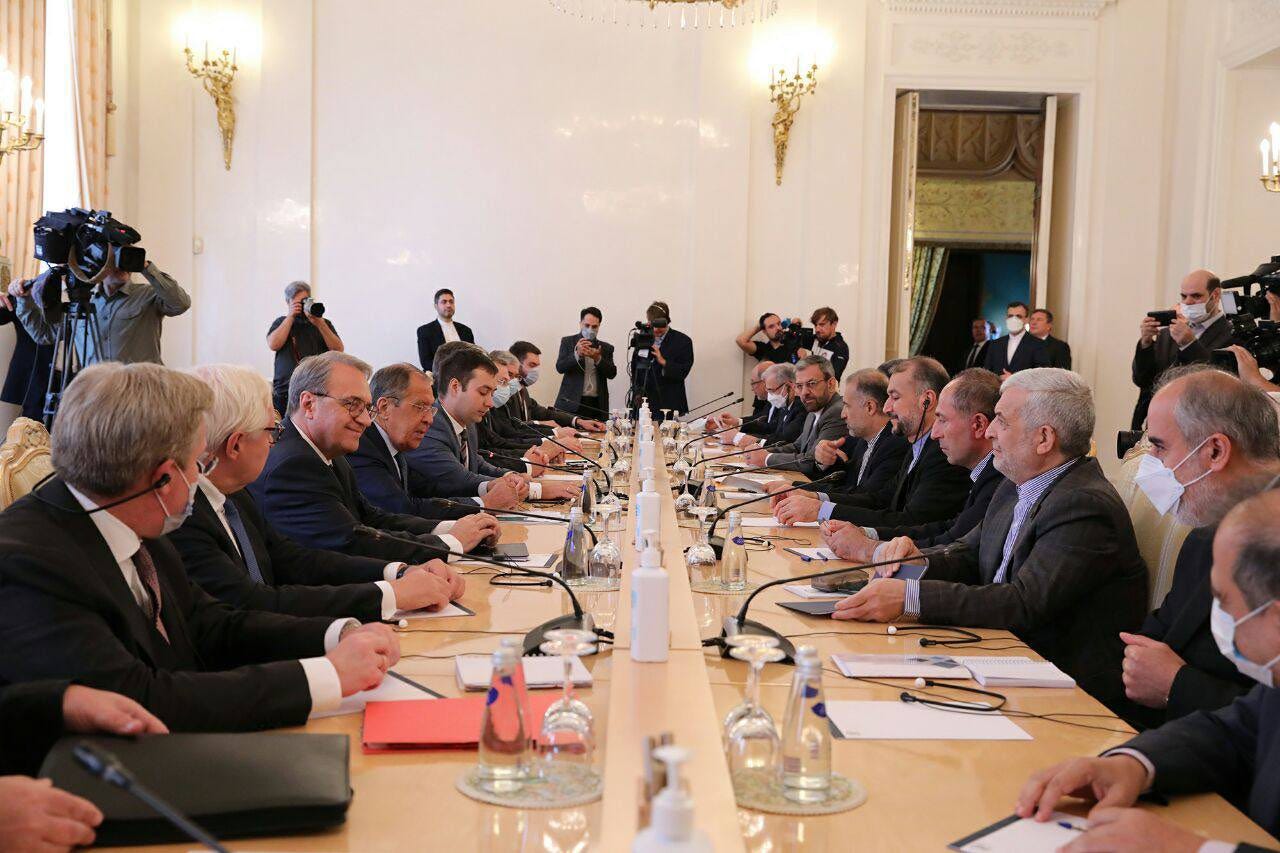State: Expectations unchanged as wait for Iran to answer
“Until we see Iran’s response, no reason to be optimistic or pessimistic,” a State Department official said Aug. 31.

US President Joe Biden spoke with Israel’s Prime Minister Yair Lapid on Wednesday as the United States awaited Iran’s response to a text it sent last week on reviving the 2015 Iran nuclear pact.
While the White House expressed cautious optimism about prospects for reviving the deal, formally known as the Joint Comprehensive Plan of Action (JCPOA), the State Department said there had been no change in the situation, and offered no reason to be especially hopeful.
“Until we see Iran’s response, no reason to be optimistic or pessimistic,” a senior State Department official said Wednesday evening (Aug. 31).
“The situation remains the same as we've said for several days now: we received Iran’s comments on the EU’s proposed final text through the EU, and we responded to the EU on Wednesday, August 24,” another State Department official said Wednesday night. “Now, it’s up to Iran to answer.”
“We still remain hopeful that we can get a re-implementation of the JCPOA,” National Security Council strategic communications coordinator John Kirby told reporters in a virtual gaggle earlier Wednesday.
“We do believe we're closer now than we had been in certain recent weeks and months due in large part to Iran being willing to drop some of their demands that were not related to the deal at all,” Kirby said. “So, we are cautiously optimistic that things can continue to move in the right direction but I don't have any tangible updates for you.”
Meantime, an EU official, asked when he thinks Iran may send its response, says he doesn’t know.
“No idea at this point,” he said.
Iranian Foreign Minister Hossein Amir-Abdollahian, meeting with his Russian counterpart in Moscow, said Iran is seeking stronger guarantees in the text.
“On guarantees, we need a stronger text,” Amir-Abdollahian said at a joint news conference with Russian Foreign Minister Sergey Lavrov in Moscow on Wednesday (Aug. 31), according to Iranian journalist Abas Aslani. “We’re studying how we can receive stronger guarantees and a stronger text on guarantees.”
“We pay serious attention to resolving safeguards issues,” Amir-Abdollahian reportedly also said.
On Tuesday, the State Department denied that the US and Iran had reached an understanding.
“We have not concluded an understanding,” State Department principal deputy spokesperson Vedant Patel told journalists on a department briefing call (Aug. 30). “The situation remains the same as I briefed yesterday. We received Iran’s comments on the EU’s proposed final text through the EU, and we have responded to the EU on Wednesday, August 24th. Now it is up for Iran to answer.”
Israeli Prime Minister Yair Lapid and US President Joseph Biden “spoke at length about the negotiations on a nuclear agreement, and their shared commitment to stopping Iran’s progress towards a nuclear weapon,” an Israeli readout of the call said.
“The leaders discussed recent events as well as Iran’s terrorist activity in the Middle East and beyond,” the Israeli readout continued. “In this context, the Prime Minister emphasized the importance of the strikes President Biden ordered in Syria.”
The White House readout of the call said the two leaders spoke to “consult on global and regional security challenges, including threats posed by Iran. The President underscored U.S. commitment to never allow Iran to acquire a nuclear weapon.”
The head of Israel’s Mossad intelligence agency David Barnea is expected to travel to Washington next week, and will reportedly brief the Senate Intelligence Committee. Barnea is reported to oppose a revival of the Iran nuclear deal, while some other Israeli intelligence and military senior officials believe the deal to roll back Iran’s nuclear program would, at a minimum, buy time that Israel could use to potentially prepare for a possible future confrontation with Iran.
“A return to the JCPOA is critical to Israel’s national security,” former deputy IDF chief of staff Yair Golan and former Israeli National Security Council official Chuck Freilich wrote in April.
“Reducing Iran’s breakout time and restoring robust monitoring are the most urgent priorities,” an organization of more than 300 retired Israeli defense and intelligence officers, Commanders for Israel’s Security, wrote, according to a report in support of restoring the Iran nuclear deal prepared by the US pro-Israel group, J Street. “A return to the JCPOA can achieve these goals.”
**Updated Aug. 31 at 8:30pm with additional State Department comments.
**


